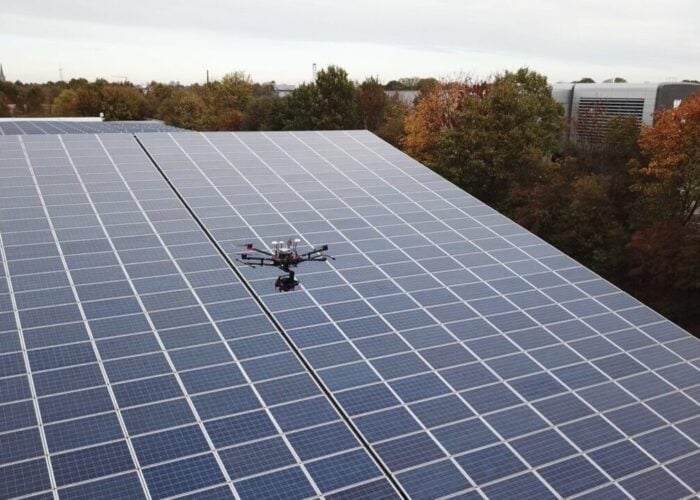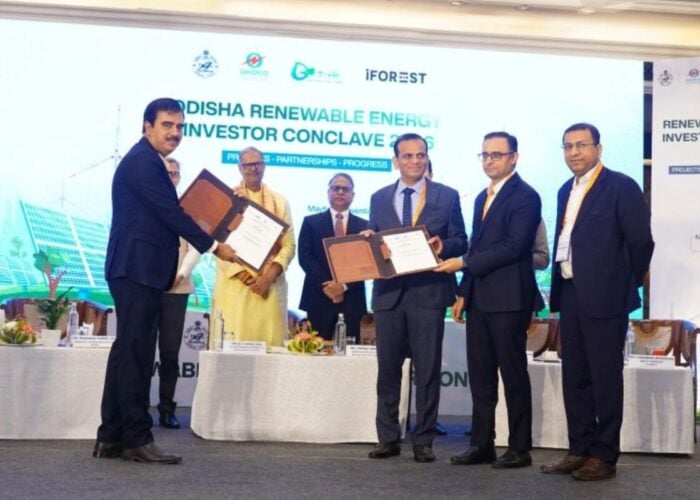
Tax equity has been hailed the “biggest hold back” for the US solar market so far, according to Sunnova CEO John Berger, and other finance experts.
Despite being the most popular, solar tax equity is one of the most complex financing mechanisms out there, when compared with its counterparts such as debt and sponsor equity. Tax equity can be executed most commonly via partnership flips, sale leaseback and inverted leases. Whilst partnership flips are the most common execution, its complex nature has prevented it taking off as the market is still fairly limited.
Try Premium for just $1
- Full premium access for the first month at only $1
- Converts to an annual rate after 30 days unless cancelled
- Cancel anytime during the trial period
Premium Benefits
- Expert industry analysis and interviews
- Digital access to PV Tech Power journal
- Exclusive event discounts
Or get the full Premium subscription right away
Or continue reading this article for free
Greg Jenner, attorney at Stoel Rives and the former acting assistant secretary of the US Treasury for Tax Policy, described tax equity as “not optimal by any means”.
“Right now I would describe it as necessary – and maybe not a necessary evil; but it’s not optimal by any means,” he told PV Tech. “There are tremendous inefficiencies in the tax equity market. The lost value to developers because tax equity doesn't invest dollar for dollar – it invests with a substantial discount.
“It's a high-priced cost, but it’s cheaper than anything else – it’s cheaper than debt and it's cheaper than equity. From a policy standpoint it’s incredibly inefficient. It would be much better if there were some alternate incentives.”
Complexity
To those in the know, the various processes do not pose a problem; but for new market entrants or those inexperienced, it can pose a significant barrier even to the point of being off-putting – according to Akamai Technologies’ Nicola Peill-Moelter.
“The ITC, while I think it's great and some companies are doing really well with that, I think for the companies that don't really understand the renewable energy market and what advantages they could have, it's a very complicated model to procure renewable energy. It might look good financially, but most companies just see it as too complicated and too risky.
“The companies that do understand the benefits and can take advantage of it and have in-house expertise, it's great that they can take advantage of it. But I do think those companies are few and far between,” she added.
In fact, the looming complexity associated with tax equity is causing some investors to steer clear altogether, preventing the market from growing to its full potential.
“At some point you’ve got to call the ball, and ask of that complexity associated with tax equity that a lot of these institutional investors have to get their head around, is that going to change?” said Berger.
“[It] doesn't look to me like that is going to change. That doesn't mean that some won't get into it but as the market becomes bigger we really need that investor base to come into [tax equity].”
It just seems hard for me to get my head around, that you’re going to have a material impact or influx of capital as long as that tax equity structure is in the way. It just seems to be holding back the industry. Tax equity is the biggest hold back for the market by far.” – John Berger, CEO of Sunnova.
Aside from the off-putting complexities, the nature of tax equity means the benefit spread throughout the value chain, minimising the net benefit filtered down to end users. In addition, some industry spectators believe that as only larger solar companies partake in tax equity, it is making the playing field uneven. However, despite there being a limited supply of investment capital in the tax equity market due to fewer investors than desired, this could all turn around as new investors are set to enter.
Nicola Peill-Moelter will be speaking at Solar Media’s Solar Finance & Investment USA event on 25 & 26 October. More information can be found on the event website here.






